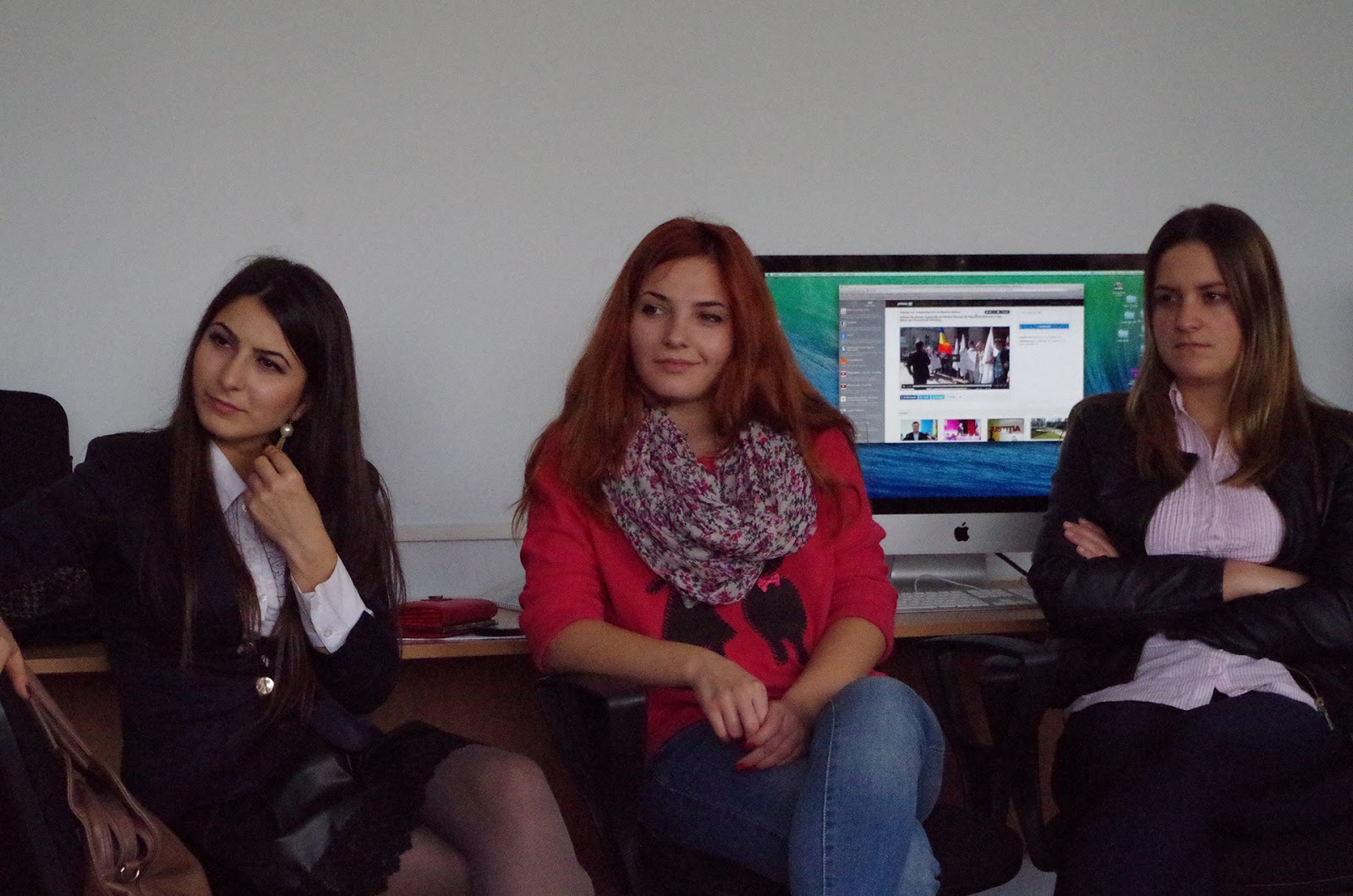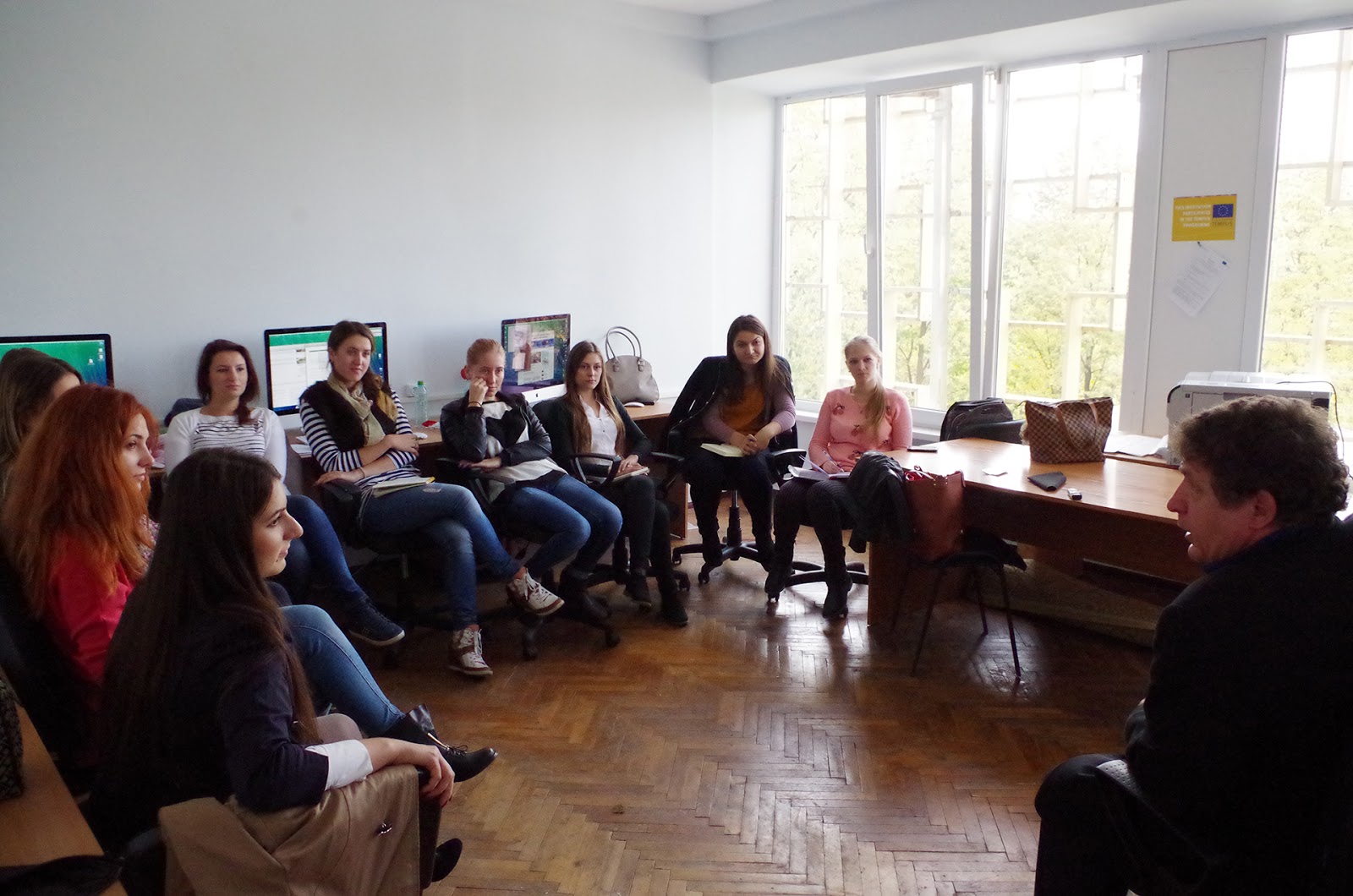The writing, filming, discussing, editing, reviewing and improving of the movies is done. Today, the German movies are presented in Chișinău. Christoph Sodemann, initiator of the project, is in Moldova right now to work with the students and present the movies from Bremen. This day is so special because on the one hand, it is the first milestone in terms of bringing the two working groups together, on the other hand, authorities from the German embassy are there to gain impressions about the project.
But now - clear the stage for the German movies:
1. 360° Bremen - The City from our Point of View. A short documentary about Bremen not how it would be presented in a sightseeing tour but the personal Bremen of three students. Here, you can experience parts of Bremen from a personal perspective, including the first art house cinema and the famous christmas market.
2. Uni Bremen News meets Gesa. The short film is based on an interview with a media and communication student at the University of Bremen. Vased upon that, the audience gains impressions about a student's life, the university and the major "media and communication". The whole movie is interesting as well as funny.
3. Students Everyday life in Bremen. The third movie is strong in it's images: three girls present their very own and completely different daily life as a student. While following Felisa, Clara and Denise through a typical day of waking up, university, jobs and freetime activities, you also get information about the costs of the life as a student in Bremen.
Enjoy!
Tuesday, December 9, 2014
Monday, December 8, 2014
Alexandru Cantir: “There is no good journalist in only one media area”
 |
| Alexandru Cantir |
In the fourth
week of the TV journalism project,
students had the chance to meet
with some of the best journalists in Moldova. One of them is
Alexandru Cantir, one of the most famous professional journalists
from Moldova, who has a career in the field for several decades.
During the meeting, participants learned the success story of the
journalist, found details about the crisis and the collaboration
project during his career.
Alexandru Cantir
made his debut in journalism during the Soviet period. Curiosity
attracted him to quality journalism and not propaganda-type of
journalism, packed in boxes as it was at that time. He began working
as a reporter since the second year of faculty.
One of the most
important periods of his career, as he said, was in 1992 when he
became a war correspondent and an officer, in same time, in the armed
conflict on the Dniester. It was a short period, but this made him
stronger and more attentive to the things that are happening around
and about the decisions that a journalist had to take in his career.
After a brief
period, with his colleague Vasile Botnaru, he founded the first
independent news agency in Moldova, BASA-PRESS Agency, which
presented a new approach of journalism to social reality, also being
a phenomenon on Moldavian media market. In the same period, he began
a fruitful collaboration with the BBC team in Romania which lasted
until 2006, classifying it as the best time of his career. In
present, Alexandru Cantir is editor-in-chief of the news agency
IMEDIA and also he is moderator of the morning show "Moldova on
7" on Radio Free Europe in Chisinau.
Talking with future journalists about the current situation of the media in Moldova, Alexandru Cantir noted: „Unfortunately, now I have more disappointments about how journalism works in our country. Until a few years ago, there was a kind of care and dedication to the profession, nowadays the importance of journalism profession begun to trivialize. It trivializes because it was turned into a business, because when the foundation of each media channel is placed strictly according commercial or political interests, then things start to go crazy. Those journalists and editors no longer complies with the rules of ethics.”
In all these
years of journalism, he has created a personal and professional
ethics, namely: truth above all, no matter what effect it has. „I
had no bosses to dictate me other than law of profession, even if I
had conflicts with some newsrooms where I worked,” said Cantir.
Asked by students which are the problems that young journalists have when they go to engage, Alexandru Cantir said that „few of them know how to impress the editor. Also few of them know the language perfectly and this is a big problem, because if you don’t know the language you have no idea how to send the message to the public. Another problem is the readiness for a job like this, because to be a journalist requires a special passion and a good grounding to feel comfortable psychologically. Otherwise, you might feel tempted to quit and get retrained.”
At the end of the
meeting, the journalist gave an advice to all those who wish to enter
the field of journalism. He said that a good journalist must be good
in all spheres: in newspapers, and radio and TV, there is no good
journalist in only one area. And over the years it was shown that to
become a good journalist it needs a lot of work and sometimes even
sacrifices.
by Cristina Curcan
Sunday, December 7, 2014
Short films are coming up!
Our students in Chișinău and Bremen have been working hard on short movies to present their culture, cities, and daily life throughout the last weeks. And finally, we will be able to see results! On Friday, the German group of bachelor and master students gathered with their lecturers to present their temporary results. After receiving useful feedback from the group, there was some more time to improve the movies even further. We can be excited about movies that are as different as the members of the group themselves: there will be a personal Bremen documentary, an insightful as well as funny interview with a media and communication student and the presentation of a student's daily life with strong images and fun facts. On Tuesday, the 9th of December, the movies will be uploaded for everyone to enjoy. Until then, stay tuned for more information about the project.
 |
| The lecturers discuss the movies with the students |
 |
| Beneficial feedback from and for the German students |
Subscribe to:
Posts (Atom)



